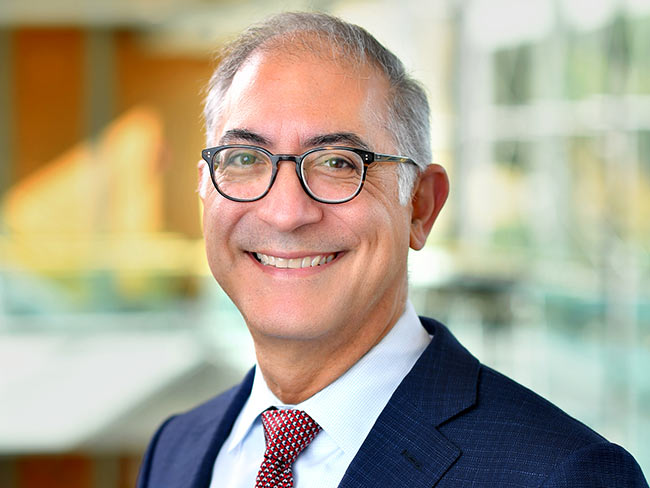News
Updates on everything that is Kaiser Permanente.
Joining a national effort
As part of the Cancer Screening Research Network, our researchers will study new screening approaches, such as blood tests that look for many cancers at once.
Latest press releases
April 11, 2024
Kaiser Permanente of Hawaii welcomes Ed Chan
April 11, 2024Launching the Food Is Medicine Center of Excellence
April 2, 2024Risant Health completes acquisition of Geisinger
March 28, 2024Top business leaders collaborate on $10 million plan to add safety measures …
March 27, 2024Kaiser Permanente and Town Hall Ventures launch Habitat Health
March 20, 2024Kaiser Permanente of Georgia unveils advanced diagnostic imaging
March 13, 2024National health care leaders commit to support public health
February 29, 2024Kaiser Permanente expands maternity services on Maui
February 28, 2024Kaiser Permanente members gain access to Boulder Community Health
February 20, 202417 awards for quality care
February 15, 2024Top-ranked for quality care in Washington state
February 9, 2024Kaiser Foundation Health Plan and Hospitals report 2023 financial results
January 16, 2024Moanalua Medical Center receives national recognitions
January 1, 20242024 Rose Parade® float wins President Award
December 20, 20232024 Rose Parade® participants showcase synchronicity between caregivers …
December 15, 2023New Medicare PPO plan expands options for seniors
December 13, 2023U.S. News & World Report recognizes Moanalua Medical Center
December 12, 2023Portland area hospitals named among best for maternity care
November 29, 2023Kaiser Permanente announces 2024 Rose Parade® float, ‘Symphony of You’ PDF
November 9, 2023Announcing the Common Health Coalition PDF
October 31, 2023Kaiser Permanente names new Mid-Atlantic regional president PDF
October 21, 2023Kaiser Permanente appoints Greg Holmes chief human resources officer PDF
October 19, 2023Expanding support for housing stability PDF
October 11, 2023Washington Permanente Medical Group honored by AMA
October 11, 2023Expanded gun violence prevention efforts PDF
October 6, 2023Kaiser permanente to study expanded nutritious food access with Instacart PDF
September 23, 2023Kaiser Permanente announces new Health Plan leadership PDF
September 21, 2023Researching climate and health solutions PDF
September 19, 2023Kaiser Permanente cancer survival rates higher PDF
September 19, 2023More than 100 ‘Top Docs’ recognized in Washington state
September 18, 2023Kaiser Permanente names new Southern California and Hawaii regional president PDF
September 18, 2023The highest rated plans everywhere Kaiser Permanente serves PDF
August 25, 2023Diane Comer to retire as Kaiser Permanente's chief information technology … PDF
August 22, 2023Kaiser Permanente expands offerings to reach more Coloradans
August 3, 2023Kaiser Permanente hospitals rated among nation’s best PDF
August 3, 2023Announcing new chief compliance and privacy officer PDF
August 1, 2023Our doctors make up 28% of all Top Doctors
July 31, 2023Home hospice care service launched
July 26, 2023Kaiser Permanente hiring 10,000 new staff for Coalition jobs PDF
July 24, 2023Moanalua Medical Center recognized for cardiovascular care
June 6, 2023COVID-19 vaccination: No serious side effects in young children PDF
May 30, 2023Kaiser Permanente commits up to $10 million to Denver Health and challenges … PDF
May 26, 2023Sunnyside Medical Center rated a best maternity hospital
May 18, 2023Dr. Linda Tolbert selected as executive medical director for the Washington … PDF
April 26, 2023Kaiser Permanente and Geisinger come together to launch Risant Health and … PDF
April 25, 2023Kaiser Permanente names Nari Gopala as chief digital officer PDF
April 7, 2023Increasing access to health care
April 4, 2023Employees celebrated for volunteerism
April 4, 2023National recognition for cancer care
March 23, 2023MS care leader recognized for vision and expertise
More from Kaiser Permanente
Kaiser Permanente Home











